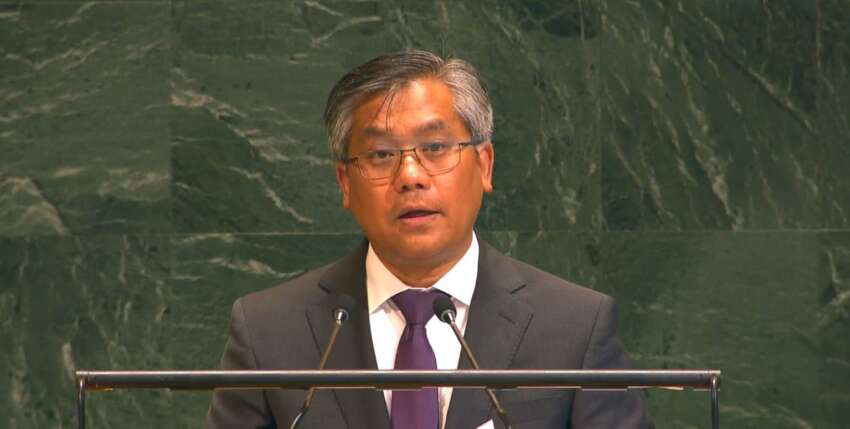
Myanmar’s Permanent Representative to the United Nations, Ambassador U Kyaw Moe Tun, has called for the International Criminal Court (ICC) to issue a timely arrest warrant for Min Aung Hlaing to protect Myanmar’s people from the military’s war crimes. This appeal was made during the 20th anniversary commemorative meeting on the Responsibility to Protect (R2P) and the Prevention of Genocide, War Crimes, Ethnic Cleansing, and Crimes against Humanity at the UN Headquarters in New York.
The Ambassador welcomed the ICC prosecutor’s application in November 2024 for an arrest warrant against Min Aung Hlaing for crimes against humanity. He emphasized that the military regime has not only destroyed domestic rule of law but continues to systematically commit acts of violence and oppression, demonstrating their blatant disregard for human life and international law. The Ambassador reported that the military’s brutality has resulted in the confirmed deaths of over 6,800 civilians, though the actual number is likely higher. He detailed the humanitarian crisis, with over 20 million people requiring urgent humanitarian assistance and more than 3.5 million internally displaced persons. Women, children, and persons with disabilities are particularly vulnerable in this situation.
The Ambassador stressed that the international community has a responsibility to protect Myanmar’s people. He called for the Security Council to take immediate action to stop the flow of weapons, ammunition, jet fuel, and financial support to the military. He emphasized that there is sufficient evidence of the military regime’s crimes to warrant international action. The Ambassador highlighted the deteriorating humanitarian situation, noting that of those requiring assistance, 10.4 million are women and girls, while 6.3 million are children. He also addressed the continuing uncertainty facing the Rohingya regarding their safe, dignified, and voluntary return to their homeland.
U Kyaw Moe Tun urged the international community, particularly the Security Council, to take unified and coordinated action without delay. He emphasized the need for a new Security Council resolution building on Resolution 2669, including monitoring and reporting mechanisms. The Ambassador called for immediate implementation of existing UN General Assembly and Human Rights Council resolutions, particularly regarding the cessation of arms flow to the military regime. He stressed that the military’s continued violations of domestic and international law, including R2P principles, require decisive international response to prevent further atrocities against Myanmar’s civilian population.



